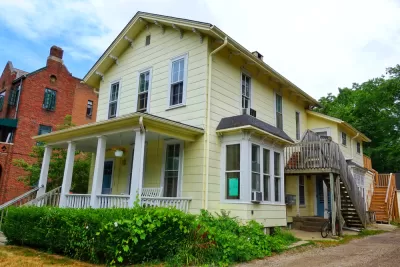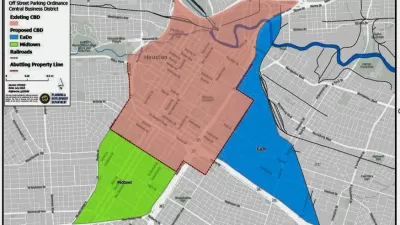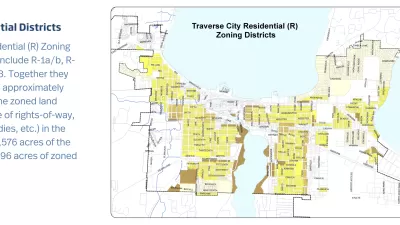After legalizing accessory dwelling units in 2016, the city of Ann Arbor hasn't added many accessory dwelling units. Some regulations designed to limit the number of ADUs developed have made the building type impossibly cost prohibitive.

"[The] Ann Arbor city council is considering ways to make it easier for homeowners to create accessory dwelling units on their property," reports Lauren Slagter.
After achieving very little development of accessory dwelling units (ADUs) since approving an ordinance to allow the construction and rental of accessory dwelling units in 2016, the Ann Arbor City Council is ready to retool the ordinance to encourage more development.
"The ordinance included restrictions intended to prevent the proliferation of ADUs across the city, and now city council thinks the restrictions may have worked too well," according to Slagter.
Most of the lack of ADU development in the city is credited to the high cost of building the units. According to Slagter, the city already dropped a previous requirement for every detached ADU to have its own water and sewer hookup, separate from the main house. Removing that requirement dropped the price of constructing an ADU by $20,000 to $30,000. Possible refinements of the city's ADU ordinance include removing maximum size regulations; removing minimum lot size requirements; allowing ADUs on lots with single-famly zones, regardless of zoning; and more.
FULL STORY: Ann Arbor looks to make it easier to build accessory apartments

Maui's Vacation Rental Debate Turns Ugly
Verbal attacks, misinformation campaigns and fistfights plague a high-stakes debate to convert thousands of vacation rentals into long-term housing.

Planetizen Federal Action Tracker
A weekly monitor of how Trump’s orders and actions are impacting planners and planning in America.

In Urban Planning, AI Prompting Could be the New Design Thinking
Creativity has long been key to great urban design. What if we see AI as our new creative partner?

King County Supportive Housing Program Offers Hope for Unhoused Residents
The county is taking a ‘Housing First’ approach that prioritizes getting people into housing, then offering wraparound supportive services.

Researchers Use AI to Get Clearer Picture of US Housing
Analysts are using artificial intelligence to supercharge their research by allowing them to comb through data faster. Though these AI tools can be error prone, they save time and housing researchers are optimistic about the future.

Making Shared Micromobility More Inclusive
Cities and shared mobility system operators can do more to include people with disabilities in planning and operations, per a new report.
Urban Design for Planners 1: Software Tools
This six-course series explores essential urban design concepts using open source software and equips planners with the tools they need to participate fully in the urban design process.
Planning for Universal Design
Learn the tools for implementing Universal Design in planning regulations.
planning NEXT
Appalachian Highlands Housing Partners
Mpact (founded as Rail~Volution)
City of Camden Redevelopment Agency
City of Astoria
City of Portland
City of Laramie





























